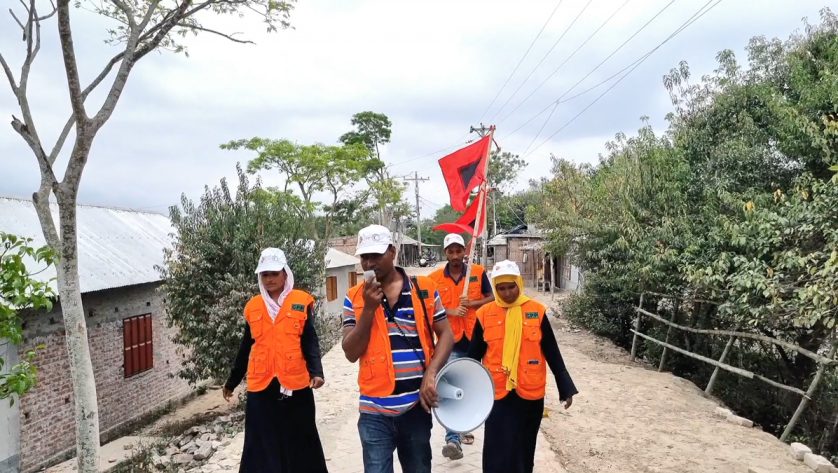Guest editorial: Cash, a chance for change
In 2003, a small humanitarian organization, then known as Horn Relief, concluded that providing cash to people suffering severe drought in northern Somalia would be the best way to revitalize markets and get people working and fed. Field workers for the organization, including myself, weren’t trying to propose grand reforms in aid delivery; we simply thought cash was the most practical solution based on local market dynamics.
The area’s economy had shut down because pastoralists — who borrow in the dry season to buy basic supplies and repay during the wet season — could not meet their debts. As cash dried up, shopkeepers shut their doors.
Visiting donors and aid organizations saw dusty towns with closed-up shops and asked, “How can you provide cash here? There’s no market.” Some openly laughed at us. Others were wary of employing cash in a country mired in conflict, with no functional central government and many areas controlled by armed militias.
Because we were working closely with the community, we could see that an injection of cash would revive the market supply chain and that, despite the challenges, Somalia was surprisingly well-suited to large-scale cash programming. We knew that shopkeepers still had goods even if their doors were temporarily shut and that the country already had a highly developed remittance system facilitated by money transfer companies.
Finally, Oxfam Novib in the Netherlands provided funding to allocate US$ 690,000 to 13,800 households. When the project concluded, a United Nations post-distribution survey found that the cash grants were extremely effective in giving the most vulnerable people access to food and other basic items available in the market. This success led to greater acceptance of cash transfers in Somalia.
Today, cash transfers are a popular aid modality, used in nearly every emergency response. When done well, cash can boost local economies and help maintain the dignity of aid recipients. But in all this rush to scale up cash interventions, I can’t help but feel we must challenge ourselves further to put affected people at the centre of our response and empower the local institutions that will help people become truly resilient over the long term.
Over time, I believe, cash transfers should be integrated into larger social protection schemes, managed where possible by governments. The diverse range of ad-hoc cash projects popping up around the world raises questions about data protection and risks undermining the development of strong, national or local social protection systems. Where possible, data should be collected by local authorities and managed centrally by governments, which would in turn adopt data protection laws and policies. These systems could then develop to become shock responsive, scaling up rapidly in the event of crisis or contracting as needed.
Additionally, the fragmented, duplicative and demeaning system of recipient registration must be streamlined. In some countries, organizations have collaborated to register recipients once and provide them with a card accepted by multiple agencies. This is far from universal in international crises, however. If it were, aid groups could free up staff to engage in more qualitative interactions that address deeper, systemic challenges.
In many ways, cash transfers are spurring these and other important discussions about the way humanitarians interact with the people they hope to help. We’ve known for years, for example, that large-scale importation of commodities can have a major, occasionally detrimental, effect on local markets. But there was little incentive to change because of subsidization of food aid in donor countries. Today, cash transfers are forcing us to raise questions about market fallout before we intervene. Similarly, they continue to push us all to improve the assessment and monitoring tools used to decide who to help and that ensure we are truly empowering the most vulnerable.
Ultimately, the cash transfer revolution could also help local organizations with local market knowledge play a greater role in helping communities strengthen their resilience. However, cash alone will not change the power dynamics that haunt the aid system and hinder local innovation. For real change, we must see cash programming as an opportunity to challenge our assumptions, facilitate self-empowerment of the people we seek to assist and spark real innovation rather than simply replacing old modalities — rice, tarpaulins and kitchen kits, etc. — with colourful banknotes, plastic cash cards or ATM machines.
 Red Cross Red Crescent magazine
Red Cross Red Crescent magazine 






 Tech & Innovation
Tech & Innovation Climate Change
Climate Change Volunteers
Volunteers Health
Health Migration
Migration